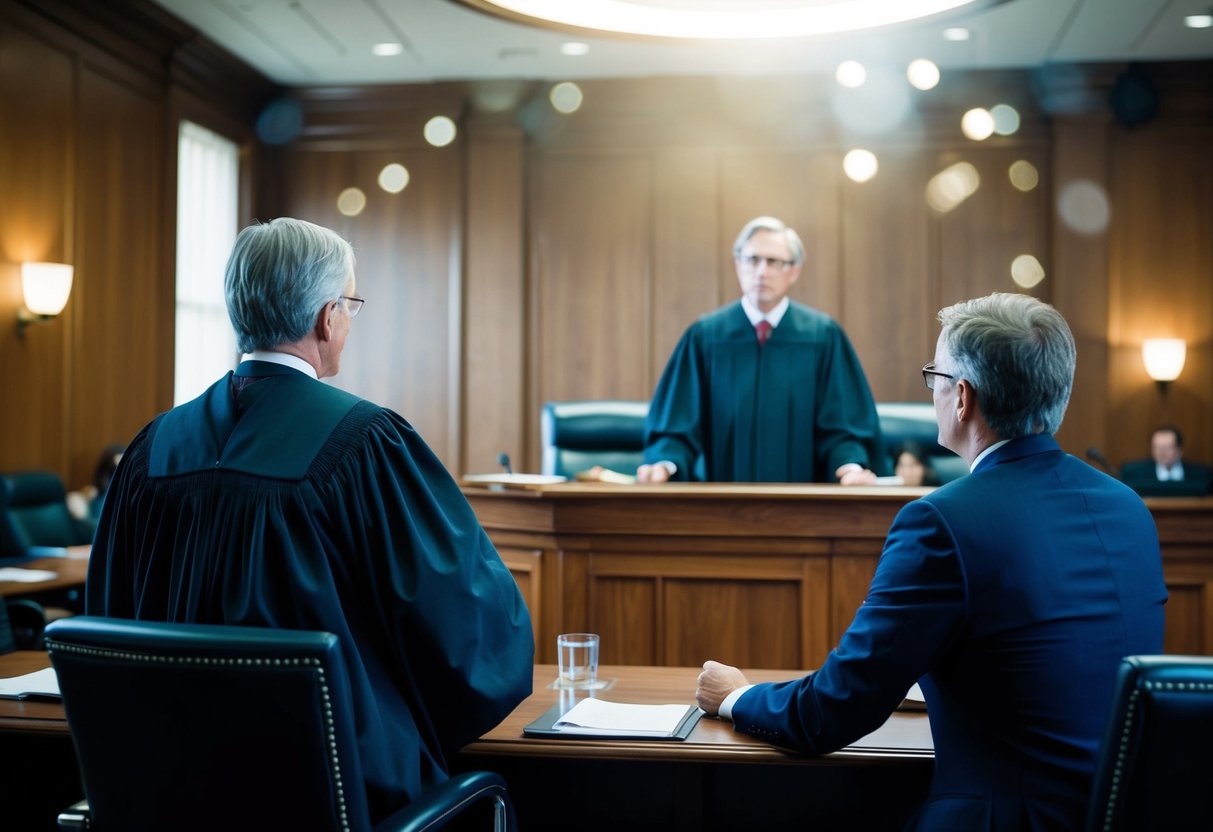Overview of Felony Charges and Definitions

Felony charges are serious crimes that often result in severe punishments. They are distinct from misdemeanors in terms of the severity of the crime and the penalties imposed.
Understanding Felony Classifications
Felonies are generally classified based on the severity and nature of the crime. Common examples include violent crimes, such as murder, kidnapping, and sexual assault. Property crimes like burglary, arson, and grand theft are also felonies.
Drug offenses range in severity but often fall under felony charges when involving large quantities or trafficking. White-collar crimes, such as embezzlement and forgery, are serious financial crimes classified as felonies. Sex crimes like human trafficking and certain violent offenses also carry felony charges. The types of felonies include treason, which is considered one of the highest crimes against the state.
Distinction Between Felonies and Misdemeanors
Understanding the difference between felonies and misdemeanors is essential. Misdemeanors are less severe crimes, often leading to lesser punishments, such as fines or short jail time. Examples include petty theft or minor drug possession.
Felonies, on the other hand, involve more serious crimes with harsh penalties. Violent felonies like robbery and domestic violence can lead to long prison sentences. Punishment for felonies can include imprisonment for more than a year, heavy fines, and loss of civil rights. Sex offenses and violent crimes often carry the most severe penalties due to their impact on victims.
Legal and Social Consequences of Felony Convictions

A felony conviction can have serious and lasting effects on various aspects of a person’s life. These effects include strict criminal penalties, loss of certain civil rights, and difficulties in securing employment and housing.
Criminal Sentencing and Penalties
Judges often impose severe punishments for felony convictions. The length and type of punishment depend on the crime. For instance, murder can result in life imprisonment or even the death penalty. Other crimes like theft may lead to a combination of jail time, fines, and probation.
Parole and supervised release are common for felons after serving part of their sentence. During this period, they must follow specific rules and may still face penalties for any violations. Community service and restitution to victims are also possible penalties.
Impact on Civil Rights and Social Status
Felony convictions result in the loss of several civil rights. Convicted felons often lose the right to vote, serve on a jury, and own or possess firearms. Some states allow the restoration of these rights, but the process can be complicated.
Socially, convicted felons face stigma. The criminal record of a felony conviction affects how society views them. Professional licenses may be revoked, and they might be excluded from certain roles or duties. This loss of status can affect their interactions within the community and with authorities.
Long-Term Effects on Employment and Housing
Finding a job can be very difficult for individuals with felony convictions. Many employers conduct background checks and may hesitate to hire someone with a criminal offense. This exclusion often applies even after a criminal record is expunged.
Housing is another area of concern. Many landlords and public housing authorities check for criminal histories. Felony convictions can make it extremely difficult to find rental opportunities. The situation is particularly tough in low-income neighborhoods where housing opportunities are already limited.
Another significant issue is the impact on immigration status. For non-citizens, a felony conviction can result in deportation or denial of citizenship.
Post-Conviction Considerations and Relief
After a felony conviction, individuals may seek relief through appeals, expungements, or restoring rights. These steps can help mitigate the long-term consequences of a criminal record.
Appealing a Felony Conviction
Appealing a felony conviction involves asking a higher court to review the case. The felon must demonstrate that a legal error occurred during the trial. Common grounds for appeal include improper evidence admission, insufficient evidence to support the verdict, or errors in jury instructions. If the appeal is successful, the conviction may be overturned, resulting in a new trial or a reduced sentence. Ineffective assistance of counsel is another frequent reason for appeal. Appeals must be filed within a specific time frame, making timely action crucial.
Opportunities for Expungement and Pardons
Expungement can remove felony charges from a criminal record. This relief is often available for non-violent and minor offenses. Each state has different rules regarding expungement eligibility. Some require the completion of parole or probation. A pardon, granted by a governor or the president, can also alleviate the consequences of a felony conviction. It does not erase the conviction but restores certain civil rights, such as voting and owning a firearm. Pardons are typically harder to obtain and often require a lengthy application process.
Restoring Rights and Reintegrating into Society
Restoring rights for felons is essential for reintegration into society. Many lose the right to vote, serve on a jury, or hold professional licenses. Processes for restoration vary by state. Some automatically restore voting rights after completing parole. Others require a petition. Employment opportunities are often limited due to background checks, but expungement can improve job prospects. Federal law may impact specific rights, like firearm ownership. Reintegrating involves more than legal processes. Support programs can help, focusing on education, job training, and housing to reduce recidivism and aid rehabilitation.




